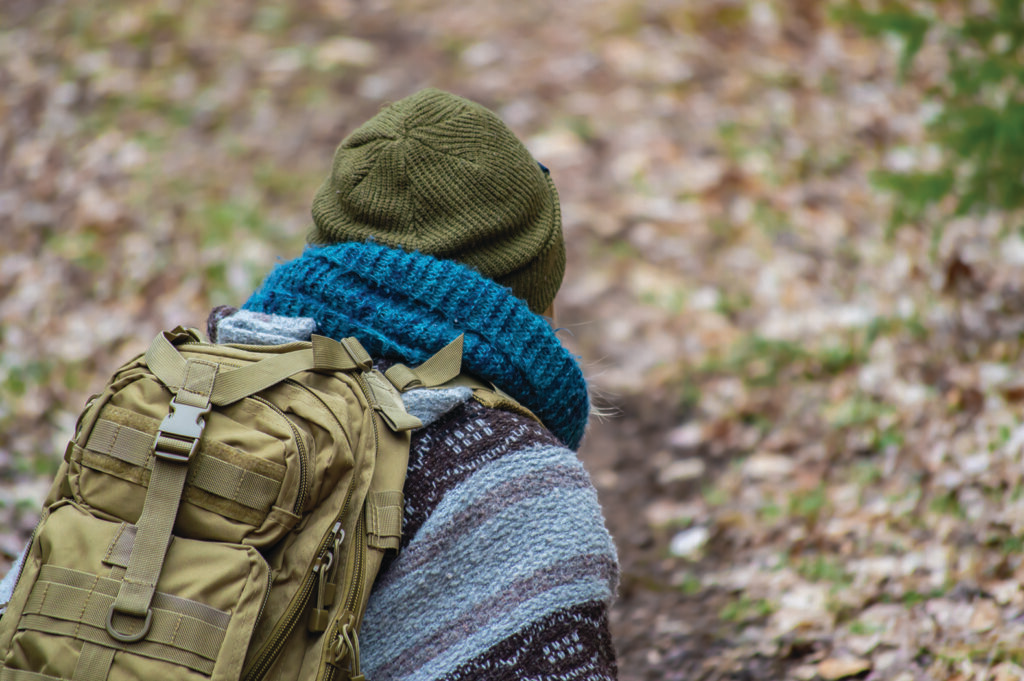Alabama people worry more about hurricanes than snowstorms, but the entire state gets frosty at times. People unprepared for the cold can develop hypothermia, and while rare, deaths do occur.
“In 2022, Alabama had 18 deaths related to hypothermia and 10 in 2021,” says Dr. Wes Stubblefield, a pediatrician and medical officer for the Alabama Department of Public Health. “Older adults and younger children, especially infants, are more susceptible to hypothermia.”
Hypothermia occurs when a body’s core temperature drops too low. Normally, a human body maintains a temperature of about 98.6 degrees. Falling body temperatures can impair functions and even cause death. Hypothermia can even occur at temperatures as high as 45 degrees.

“Hypothermia is caused by a combination of factors,” Stubblefield says. “One factor is air temperature. The other is wind chill. If a person’s skin is wet and exposed, that person can develop hypothermia.”
Water dissipates heat. Wind blows heat away from a body. As a body cools muscles rapidly contract and relax as it attempts to warm itself. People begin to shiver. Jaw muscles also contract and relax, causing teeth chattering.
“The body cuts off the blood supply to the skin to save vital organs and a person starts to shiver,” Stubblefield says. “A person’s hands and feet get cold. Infants and older adults have less muscle tissue, so they have less ability to compensate for heat loss.”
As the body chills, people become disoriented. They feel exhausted and drowsy. One’s skin could turn bright red but feel cold to the touch. The person might deny a problem exists or even resist help. Some people become belligerent in their denial.
“As the brain starts to get cold, it impairs judgment,” Stubblefield says. “People have memory loss and slur their speech. It’s almost like they are drunk. If the body temperature drops below 95 degrees, that person needs immediate medical attention. If people don’t get warm, they can lose consciousness. If a person passes out, that person might stop breathing as the body shuts down.”
Many people drink alcohol to warm themselves. Alcohol causes vasodilation, or a widening of blood vessels. This increases blood flow to the skin and makes the skin feel warmer. That transfer of blood cools internal organs and weakens a body’s ability to warm itself. Alcohol also affects a person’s decision-making ability, which could already be diminished by the cooling temperature.
If you encounter someone who may be at risk of hypothermia, remove any wet clothing and get that person to an external heat source. Direct skin-to-skin contact with a warm, unaffected person can help. If possible, build a fire. If near a vehicle or building, get inside and out of the wind. Turn a heater on if available. Keep the victim moving. Give the victim hot liquids, like coffee, tea or soup, to help raise the body temperature.
Hunters, fishermen, hikers and others who enjoy outdoors sports probably suffer the greatest risk of hypothermia. Boaters could fall into the water or get drenched by spray. Hunters and hikers walking in the woods could sweat, soaking their inner layer of clothing. That could cause chilling problems as darkness approaches.
“Most of us Alabamians don’t know how to dress appropriately for cold weather,” the doctor says. “People don’t understand what it means to keep one’s head warm. Heat radiates from a person’s head.”
An ice or snowstorm can knock down powerlines, shutting off power to affected areas. Linemen must go out in all types of weather to restore power and communications. Biting winds can batter workers up on high poles.
“Our employees must work in every type of weather,” says Jeff Whatley, statewide safety specialist for the Alabama Rural Electric Association. “When sleet makes driving hazardous, our people are still out working in it. No matter how cold or how much precipitation, we must restore power because people’s lives depend on it.”
Linemen must dress appropriately for any situation. During cold weather, they wear layers and add or remove articles as necessary. In addition, linemen must only wear all-natural fabrics like cotton to avoid possible burns in the event of an electrical flash.
In the winter, people who work outdoors need to wear thicker, bulkier clothing to keep warm, but linemen often can’t do that because several layers can inhibit their movements around high-voltage power lines.
When cold weather hits, watch out for each other, especially when you’re outdoors. Check on relatives, friends and neighbors. Keep everyone safe.
Find more information on hypothermia at cdc.gov/winter-weather/prevention/index.html.
John N. Felsher is a professional freelance writer who lives in Semmes, Ala. He also hosts an outdoors tips show for WAVH FM Talk 106.5 radio station in Mobile, Ala. Contact him at [email protected] or through Facebook.




